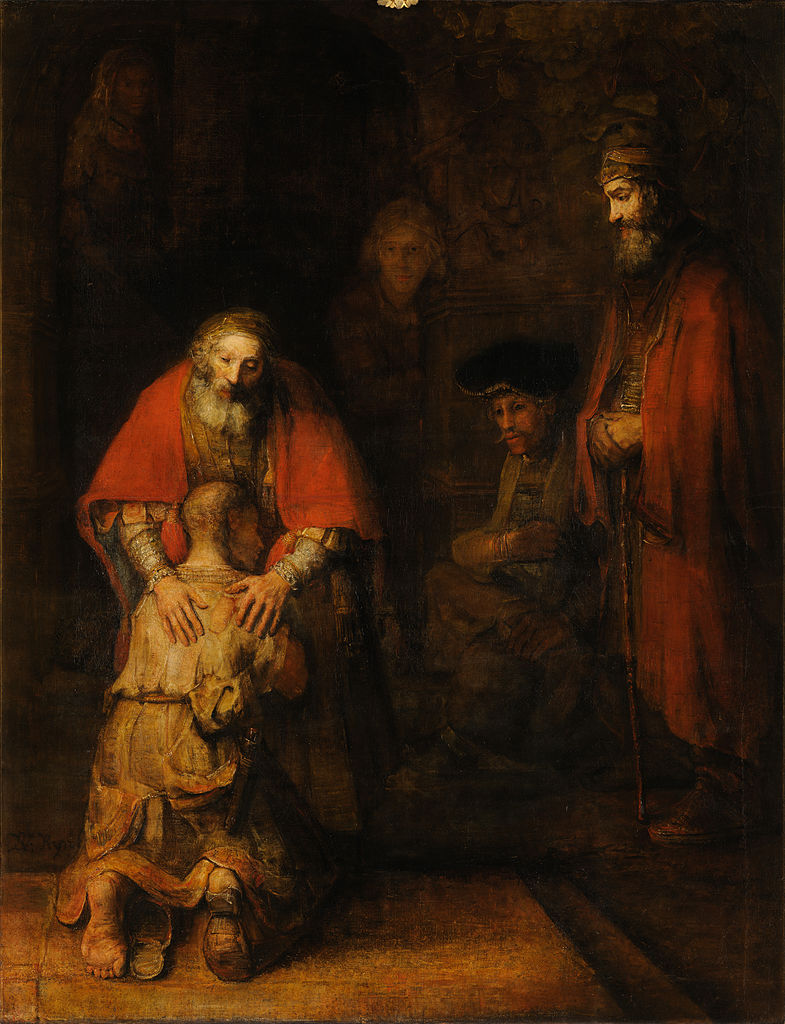XXVI SUNDAY IN ORDINARY TIME - 1 Timothy 6:11-16
We can easily fall into two traps: we may think that salvation is a fruit of our endeavour, and that our holy life deserves to be rewarded by God; or we may go in the opposite direction, waiting for God to save us anyhow, without our effort and our contribution.
We may ask: Do we have a right to enter the kingdom of God? Even though we dream of heaven, we are earthly beings, who cannot reach to heaven. It is God in his loving mercy who adopts us as his children in Jesus Christ. Our right to heaven is God’s gift, and we cannot claim it as a birth right. And God will not force us into heaven. Like the prodigal son, we must accept our weakness and realise the foolishness of our sin, and decide to go back to the Father. We must get up and do the journey.
God takes the initiative, loving us, being merciful to us and calling us to his household; then, it is up to us to recognise and accept his love. It is up to us to live like his children. Already in the Old Testament, God had ordered the people of Israel to be holy, because he is holy (Lev 19:2), and Jesus, repeating the same command, invites us to “be perfect as the Father is perfect” (Mt 5:48). Paul reminds us that to achieve that we must train hard and practice, as those who practice sports do (1 Cor 9:24,26). It is a hard struggle; it is a fight, even though we are sure of winning, if Jesus Christ is by our side fighting with us. In his letter to Timothy, Paul reminds him of that:
“As a man dedicated to God, you must aim to be saintly and religious”.
To achieve that,
“Fight the good fight of the faith and win for yourself the eternal life to which you were called”.
We should not delude ourselves thinking that no matter what we are saved. Faith and deeds go together, and do not exist one without the other. Faith alone, without the works of love and mercy, is empty and meaningless talk. Jesus himself had warned his disciples saying: “Strive to enter through the narrow door. For many, I tell you, will seek to enter and will not be able.” (Lk 13:24). Eternal life must be won through a struggle, in which we work hard to do better and to become more like Jesus Christ. Paul advises Timothy: be “filled with faith and love, patient and gentle.” Without works of mercy and love, our faith is dead and the gates of heaven will not be open for us. This struggle is not violent; we are not fighting our fellow human beings; on the contrary, we must learn self-control, being “patient and gentle”. We must work hard in order to be faithful:
“I put to you the duty of doing all that you have been told, with no faults or failures, until the Appearing of our Lord Jesus Christ”.
This Sunday’s gospel tells the parable of the rich man and the poor Lazarus. No matter how rich we are, our wealth will not buy our salvation. God can never be bribed. Without works of love and mercy, the gates of heaven will remain closed for us. Both the wealthy man and the destitute Lazarus died, and in death their situation was inverted. The rich man could not carry all his money with him, and he could not buy his way out. He arrived empty handed. As for the poor Lazarus, he had suffered enough at the hands of the rich, and he found peace and rest from his sufferings.
We will be judged by our actions, mainly by what we did or failed to do towards the poor, the suffering and the oppressed living among us.


